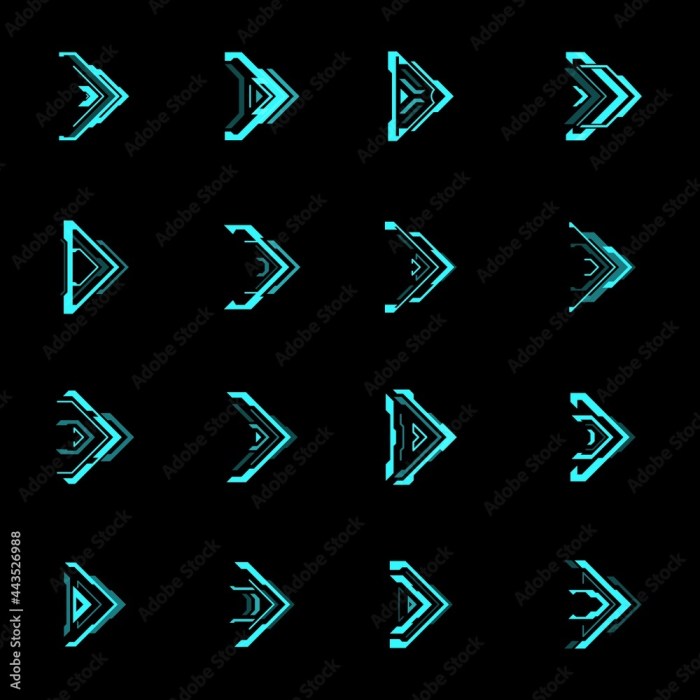What is game direction? In the realm of game development, it serves as the guiding force, shaping every aspect of the player’s journey. Game directors, the masterminds behind these immersive experiences, orchestrate a symphony of creativity, leadership, and communication, ensuring that each game captivates and enthralls.
Game direction encompasses a myriad of responsibilities, from defining the game’s core concept and vision to overseeing its development and execution. It’s a multifaceted role that demands a unique blend of skills, from technical proficiency to artistic flair.
Definition of Game Direction

Game direction encompasses the creative vision, leadership, and decision-making responsibilities that guide the development of a video game. The game director oversees the entire development process, from concept inception to final release, ensuring that the game aligns with its intended goals and vision.
Key responsibilities of a game director include:
- Establishing the game’s core concept, mechanics, and gameplay
- Guiding the design team in creating engaging and immersive experiences
- Collaborating with other departments (e.g., art, programming, audio) to ensure a cohesive and polished game
- Managing the development schedule, budget, and team dynamics
- Providing feedback and direction throughout the development process
Game directors may also specialize in specific roles or functions, such as:
- Creative Director: Responsible for the overall artistic vision and storytelling
- Lead Game Designer: Focuses on game mechanics, level design, and player experience
- Technical Director: Oversees the technical aspects of development, including engine selection and optimization
Key Skills for Game Directors
Effective game direction requires a combination of essential skills and knowledge, including:
- Creativity and Vision:Ability to conceive and articulate a compelling game concept and vision
- Leadership and Management:Skills in motivating, guiding, and managing a team of developers
- Communication:Excellent verbal and written communication skills to convey ideas, provide feedback, and collaborate effectively
- Game Design Knowledge:Understanding of game design principles, mechanics, and level design
- Technical Proficiency:Familiarity with game development tools, engines, and technologies
- Player Psychology:Insight into player motivations, behaviors, and preferences
- Business Acumen:Awareness of industry trends, market analysis, and financial considerations
The Role of Game Direction in Game Development

Game direction plays a pivotal role in the collaborative nature of game development. The game director acts as a central figure, guiding the team’s efforts and ensuring that the game aligns with its intended vision. They work closely with other team members, including:
- Game Designers:Collaborate to develop game mechanics, level designs, and character systems
- Artists:Guide the creation of visual assets, character models, and environments
- Programmers:Provide technical direction and ensure that the game functions as intended
- Audio Engineers:Collaborate to create immersive sound effects, music, and voice acting
- Producers:Manage the development schedule, budget, and team resources
Through effective collaboration and communication, game directors foster a cohesive and supportive environment where team members can contribute their expertise and work towards a shared goal.
Game Direction Methodologies, What is game direction

Various methodologies and approaches are used in game direction, each with its own strengths and weaknesses:
- Agile Development:An iterative approach that emphasizes flexibility, collaboration, and incremental progress
- Waterfall Model:A linear approach where development progresses through distinct phases (e.g., design, development, testing)
- Scrum:A framework that emphasizes regular sprints, daily stand-up meetings, and retrospective reviews
- Kanban:A visual system that tracks work progress using cards on a board
- Hybrid Methodologies:Combinations of different approaches tailored to specific project requirements
The choice of methodology depends on factors such as project size, team size, and development timeline.
Questions Often Asked: What Is Game Direction
What are the key responsibilities of a game director?
Game directors oversee all aspects of game development, including concept design, level design, character development, and gameplay mechanics.
What skills are essential for effective game direction?
Game directors require a combination of creativity, leadership, communication skills, technical knowledge, and a deep understanding of game design principles.
How does game direction impact the development process?
Game directors work closely with other team members to ensure that the game’s vision is realized throughout the development process, from pre-production to post-launch.
What are some common methodologies used in game direction?
Game directors employ a variety of methodologies, including agile development, waterfall development, and iterative development.
What tools and resources are available to game directors?
Game directors have access to a range of tools and resources, such as game engines, level editors, and project management software.
